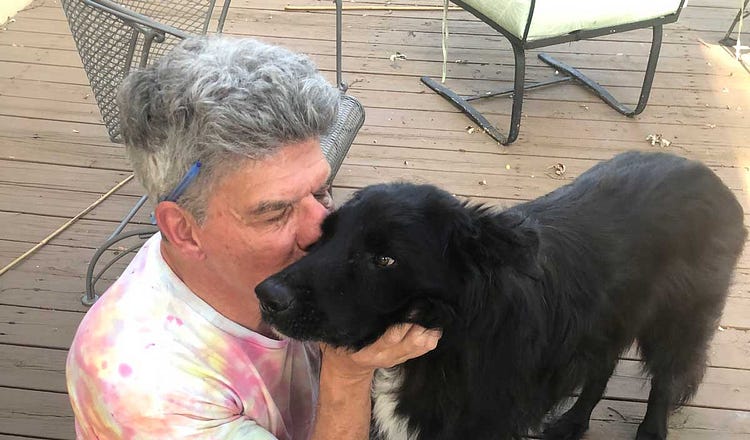
Every year when Christmas and Hanukkah wheel around, my Judeo-Christian family reminisces over yellowed photo albums and tells stories so familiar to everyone that it’s been suggested we refer to them by numbers: No. 3 for when Fuzzy’s barking saved Hank from a fire, No. 9 for the time Jenny fell on the ice—that sort of thing. It’s the bittersweet season of miracles and memories, when time touches eternity, and we revisit the vanished worlds of loved ones lost.
That includes dogs. Most recently, Obie, our flat-coated retriever. We put him down over the summer. At first, there was that raw stage, when you come home tired from work and turn the key, subconsciously expecting licks and tail-wags, and finding instead the pang of grief as you cross the threshold and once again encounter only absence.
Every loved one’s death affects us in its own way. The death of a child is a horrific tragedy, full of guilt and recrimination. The death of a friend leaves one feeling like an island sinking into the sea. A parent’s death removes some core part of your being. A departed dog sometimes noses its way into consciousness long after it passes on to the grassy fields of the hereafter.

